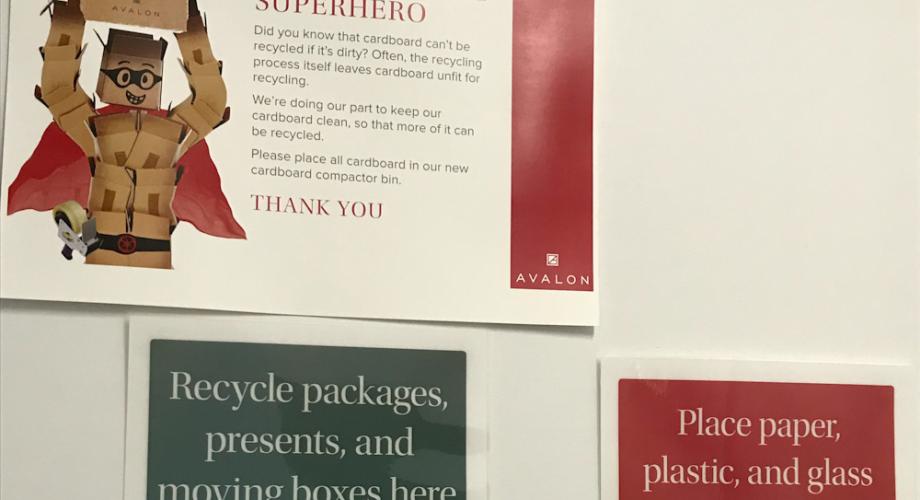Waste-hauling costs are increasing and recycling policies are becoming stricter. Apartment operators are seeing the effects and are taking a variety of steps to improve efficiency and cost-effectiveness. In Part 8 of this 13-part, in-depth report, we share the importance of proper recycling etiquette.
Consumers’ lack of recycling knowledge and protocol could bring a tear to your eye.
The effectiveness of a waste management program largely falls on residents’ efforts. Since the classic “Keep America Beautiful” public-service campaign of the early 1970s, featuring the teary-eyed American Indian expressing sorrow that Americans are polluters, society has struggled to meet the high bar set by environmental groups. Out of ambivalence, laziness, ignorance or apathy, a learning curve remains a challenge.
“A lot of times, people will toss something in the recycle bin because it makes them feel good, that they are doing their part, but it might not be recyclable,” AvalonBay’s Mark Delisi says.
Baltimore Sun reporter Scott Dance in June wrote that recycling experts say “[recycling compliance trends] are the product of good intentions, but poor education — a phenomenon they call ‘aspirational’ recycling or ‘wishcycling.’ The increasing presence of food scraps, plastic bags and even bowling balls in recycling streams, where they don’t belong, has thrown off the industry’s economics.”
Ashley Cook at Bell Partners says, “When you have a community with 250 apartment homes, it’s really difficult to educate residents on what materials are recyclable and what aren’t. And just because the resident has been told, it doesn’t mean they follow through. Recently, I’ve seen residents putting sweaters (or other non-recyclable garments) into the recycle bin. Greasy pizza boxes are another no-no because the grease contaminates what otherwise are recyclable paper products. And with milk cartons, for example, it depends what material they are made of and if that locality allows them to be recycled.
Pinnacle’s waste partner developed and shared a resource that offers signage, door hangers, videos and collaborative materials that help to educate residents and staff.
“Changing behavior will take time and continuous effort to relay the importance and impact of getting unaccepted items, such as plastic bags, out of the recycling stream,” van Beveren says.
Common areas and waste depositories often lack sufficient signage. And confusing signs aren’t much better. An interesting predicament can come from language barriers. Noted Cortland’s Jana Alfiero, during the NMHC OpTech Conference session “Talkin’ Trash,” that if a container is labeled “Re- fuse” and an American and European resident were asked what that means, “wouldn’t you get two different answers?”
Prometheus’ Mary Nitschke says there’s an added learning burden for residents who have moved because they can face different regulatory rules and varying waste management protocols set by communities.
“Our resident surveys show that they want a clearer recycle policy,” Nitschke said, speaking at the NMHC OpTech Conference in November, “They need to re-learn the new policies at their new community because not all communities handle waste the same way.”
Cortland says, “Make the recycling area part of your move-in tour. Eighty percent of residents want to do the right thing. If you show them, they will do it. If not, they will come up with their own solutions, which will not be helpful.”
Simplified, if the material is marked with a 1 or 2 inside a triangle, it should be recycled. Items with other numbers inside the triangle are recyclable based on the hauler’s policy. Items marked 5 are often recyclable, but communities should consult their haulers.
Give Back Box is a program that enables e-commerce recipients to use their opened shipped boxes to hold used household items, which are then picked up and shipped back at no charge and then donated to a worthy cause. Give Back Box not only provides an easy way to be part of a truly good cause, it gives a secondary use to corrugated boxes and guarantees they will be recycled. Prometheus Management shares the “Give Back Box” video with its residents to help promote its sustainability standards.
Back to the Trash Talking in-depth report or read the part 9 story: No More Recycling: Has the Time Come?
